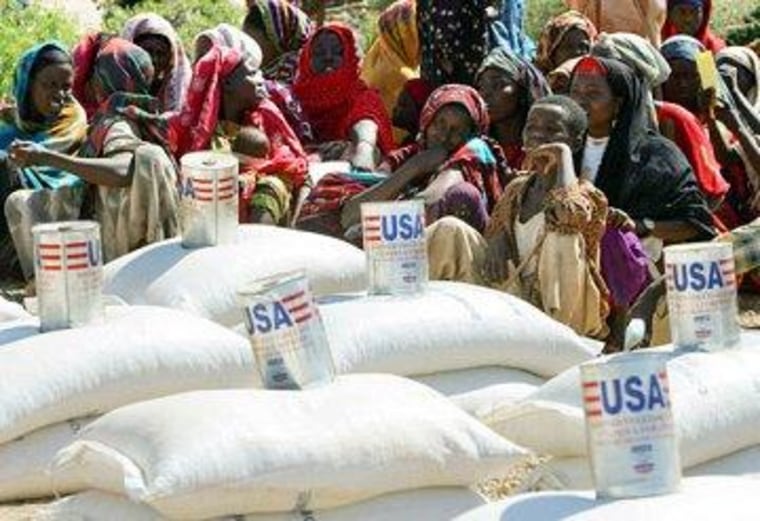When it comes to humanitarian responses to famines, one would like to think efficacy and common sense play a key role. As Jonathan Zasloff and Kevin Drum noted yesterday, that's generally not the case.
In Ethiopia, for example, it would make sense, logistically, to "find some farmer or group of farmers in other parts of the country, or in neighboring countries, buy their food and get it to the stricken area." But that's not how the current system works -- federal relief agencies are required to prioritize food purchase from within the United States, then ship it, which needlessly delays the response. And when responding to a famine, time matters.
So, the Obama administration wants to overhaul the system to make it faster and more efficient. That might sound like a no-brainer, but as is nearly always the case in Washington, change isn't easy.
An Obama administration plan to change the way the United States distributes its international food aid has touched off an intense lobbying campaign by a coalition of shipping companies, agribusiness and charitable groups who say the change will harm the nation's economy and hamper efforts to fight global hunger.Proponents of the plan, however, say it would enable the United States to feed about 17 million more people each year, while helping to fight poverty by buying the crops of farmers in poor countries.
On the one hand, we have arguments from the Obama administration -- we can have faster, life-saving responses if we buy food closer to the affected areas. It will also save taxpayer money, since shipping food around the globe is more expensive than moving food within a country or from a neighboring country.
On the other hand, the change would mean less money for American agribusinesses and shipping companies.
It's also worth noting that the Bush/Cheney administration proposed a similar change in 2007, but it stalled in the face of opposition from "agribusiness, shipping and charitable groups."
We'll see soon enough whether Obama has more success.
